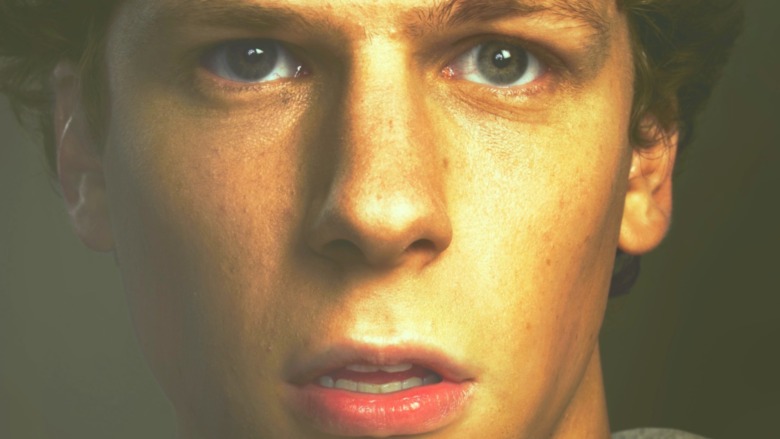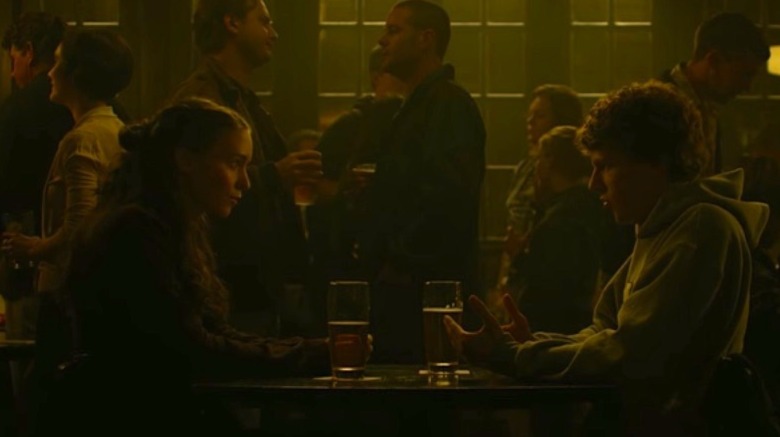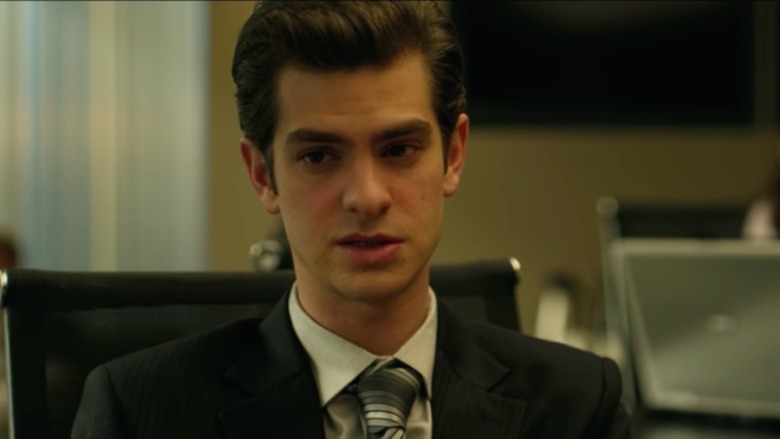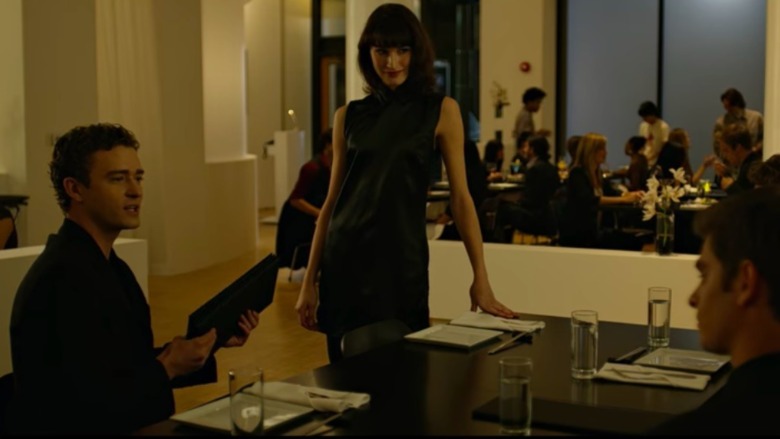Everything The Social Network Got Wrong About The True Story
Written by Aaron Sorkin and directed by David Fincher, The Social Network came out in 2010 to major acclaim. The National Board of Review named it the best film of the year, and the film nabbed several Oscar nominations and three wins, including Sorkin winning for Best Adapted Screenplay. Moreover, it's also considered one of the best films of the decade.
Labeled as a biographical film, The Social Network sheds light on the creation of Facebook, centering on its founder and CEO, Mark Zuckerberg (Jesse Eisenberg). Sorkin adapted his screenplay from the nonfiction book detailing the founding of Facebook, The Accidental Billionaires by Ben Mezrich.
As with most biopics, some details were changed or exaggerated, which is necessary when creating a more coherent and compelling plot line. With this in mind, The Social Network isn't entirely accurate, although it does hold a significant amount of truth about the rise of the social media platform. Still, it's interesting to look into how the film differs from the real-life story; here is a rundown of the biggest changes made for the screen.
Motivations for a social network may differ
The Social Network opens with Mark getting dumped by his girlfriend, Erica Albright (Rooney Mara). Upset over the breakup, Mark goes back to his Harvard dorm room and blogs about Erica, including many insulting remarks about her. Soon after blogging, Mark begins working on a website called Facemash, created to compare the physical features of female campus students, after hacking into the university's database. The website blows up in popularity, grabbing the attention of twin brothers Cameron and Tyler Winklevoss (Armie Hammer). They approach Mark about helping them with a social networking site exclusive to Harvard students. Mark agrees to help them, but instead works on his own similar project, which becomes Facebook.
In reality, the origins of the site were not the same. It's true that Zuckerberg wrote a negative blog post about a woman who may or may not have been an ex-girlfriend — although they changed the name mentioned in his post for the film — and he did create Facemash, which was taken down by Harvard and led to Zuckerberg facing expulsion (via SlashFilm and ScreenRant). However, according to Vanity Fair, Facemash used photos of both men and women for attractiveness comparisons.
During a Q&A session, Zuckerberg claims he did not create Facebook to "attract girls." He brings up how he's known his wife, Priscilla Chan, since before he started Facebook. If he had the same motivations as the film portrays, his wife likely wouldn't have continued dating him or eventually marry him. According to the Vanity Fair piece, this statement is true: Zuckerberg started dating Chan in 2003, which is the year the film begins. In the Q&A, Zuckerberg insists he made Facebook because he wanted to "help connect the world."
Eduardo's story is more complicated
In the film, Eduardo Saverin (Andrew Garfield) is a victim. A close friend of Mark's, the two co-found Facebook together, with Eduardo providing the funds to get started. As the film progresses, Mark begins to go against Eduardo's input, making key decisions without him. Things come to a head when Eduardo discovers a new investment deal, significantly decreasing his shares in the company. Eduardo declares he'll sue Mark. From the viewer's perspective, it's easy to side and empathize with Eduardo, who is seemingly brushed off and betrayed by his best friend. The reality of what happened is slightly more complicated than how it's presented in the film — namely, Eduardo isn't a simple victim.
Business Insider conducted a thorough investigation into the early days of Facebook, including many instant message conversations between Zuckerberg and various people. The investigation reveals that while Saverin was in New York, he neglected his financial duties, causing the budding company to start sinking. Zuckerberg's family had to take out loans to help. This is partially due to Saverin's extensive partying in New York, while Zuckerberg, in a message conversation between the two, says he and his team have been focusing on the business. This is the opposite of how the film portrays this time period.
On top of that, Saverin posted ads for his own startup on Facebook without consulting Zuckerberg or anybody else. Finally, while Saverin may be the co-founder, he was not the original collaborator of Zuckerberg's; that would be Adam D'Angelo, Facebook's first CTO, as Business Insider learned in more of the conversation between Zuckerberg and D'Angelo.
Details changed about Sean Parker
Sean Parker (Justin Timberlake), the entrepreneur who becomes a mentor to Mark and the eventual president of the company, is introduced to Facebook after a female companion has the site displayed on her laptop. Soon, Sean is meeting with Mark and Eduardo, where he presents his ideas for the company, impressing Mark but not Eduardo. Sean and Mark begin working together shortly after Mark moves to Palo Alto. Sean contributes to the party lifestyle presented in the film and is even arrested for possession of cocaine at a house party where the two are living; Mark cuts ties with Sean soon after.
In reality, Sean's place in the story played out a little differently. While Parker was arrested for drug possession (but not charged), it didn't happen in the Palo Alto house in 2004; rather, the incident occurred in 2005 outside of California, according to a separate Vanity Fair profile on Parker. After the incident, Facebook investors pressured him into resigning as president, although he continued to act as a consultant for Zuckerberg with no falling out between the two (via Screenrant and VF).
Naturally, all of these changes made a compelling film, but it's still fascinating to discover The Social Network's journey from real life to the big screen.



